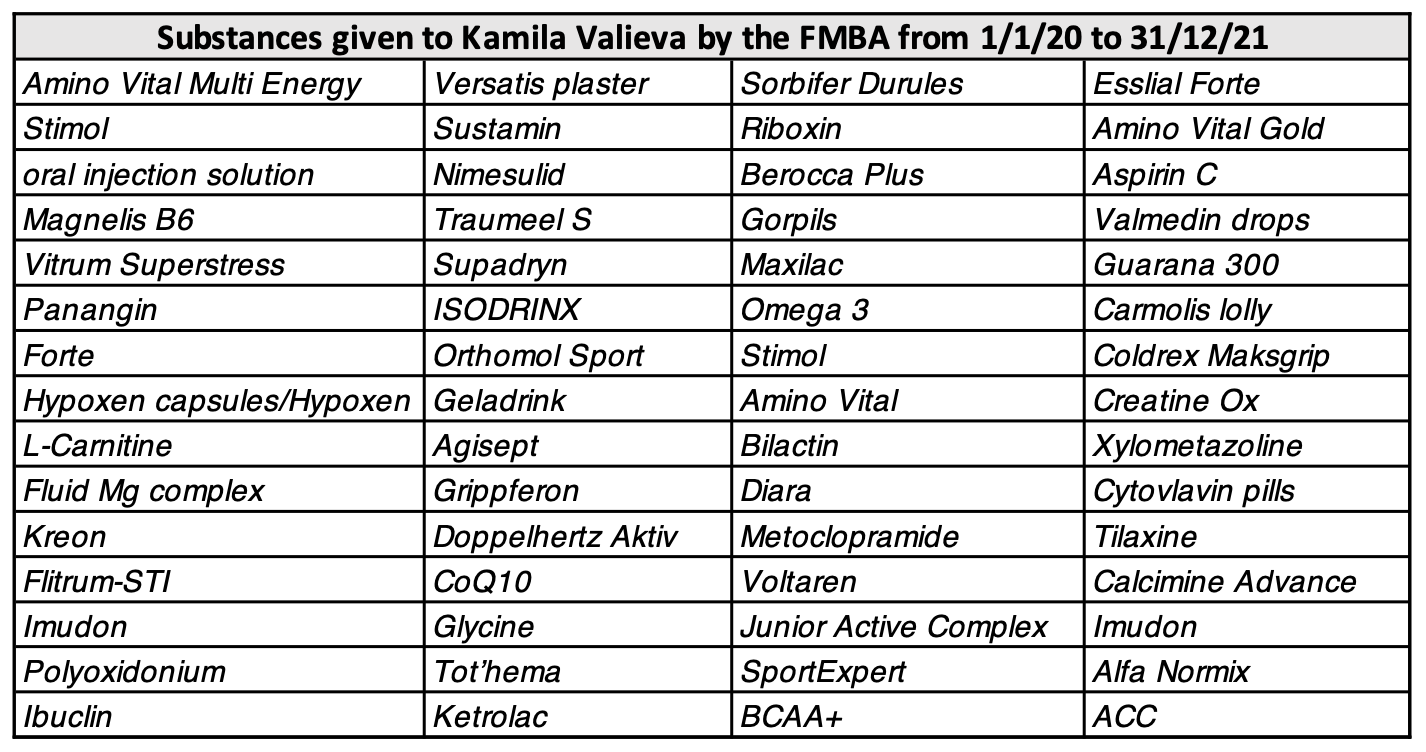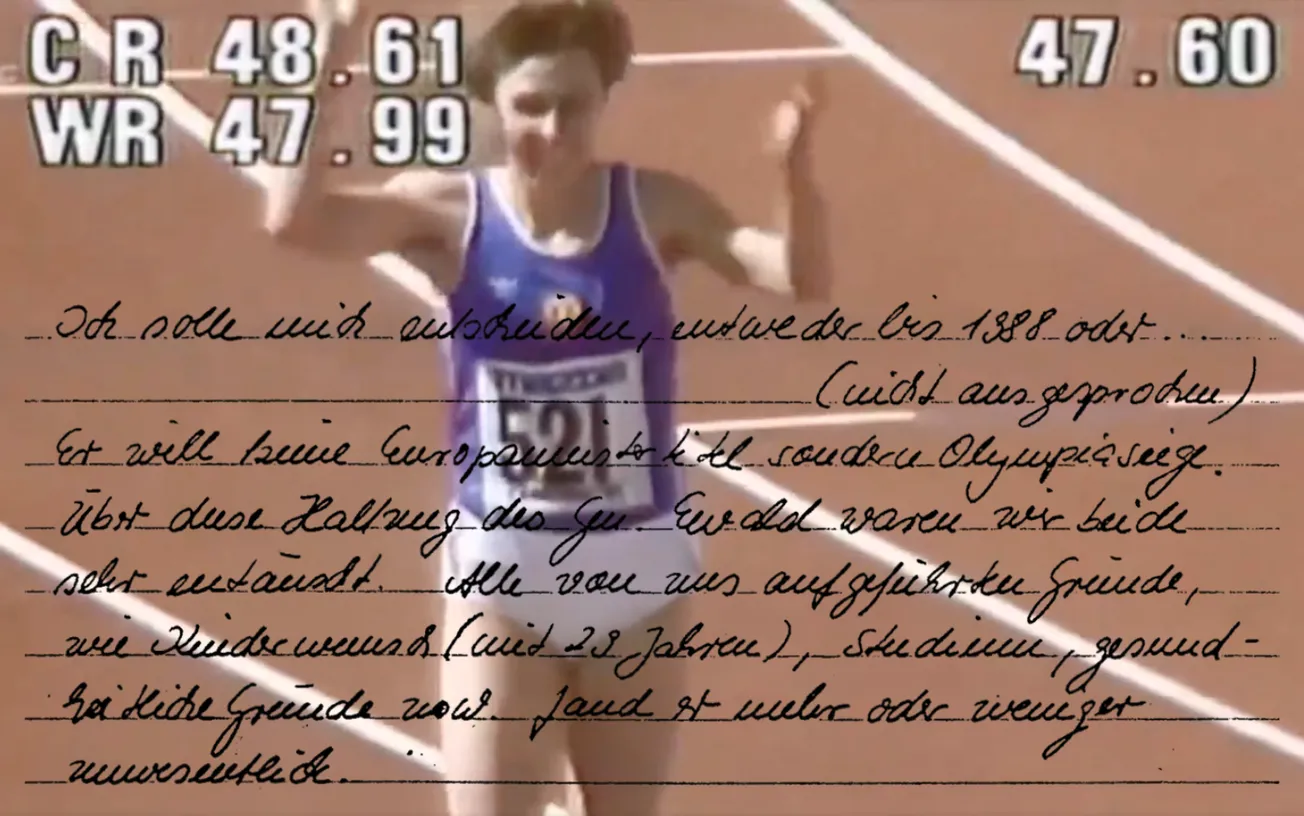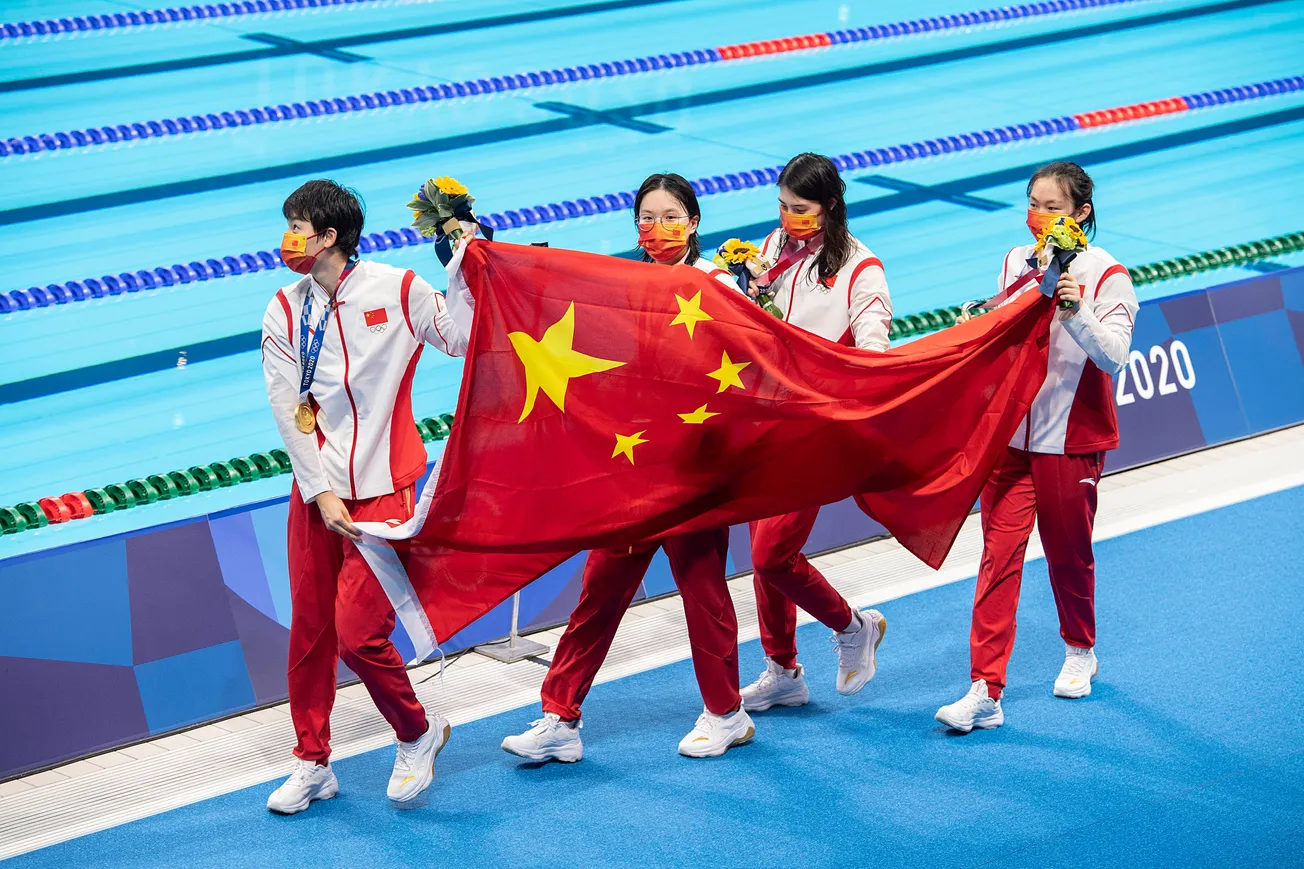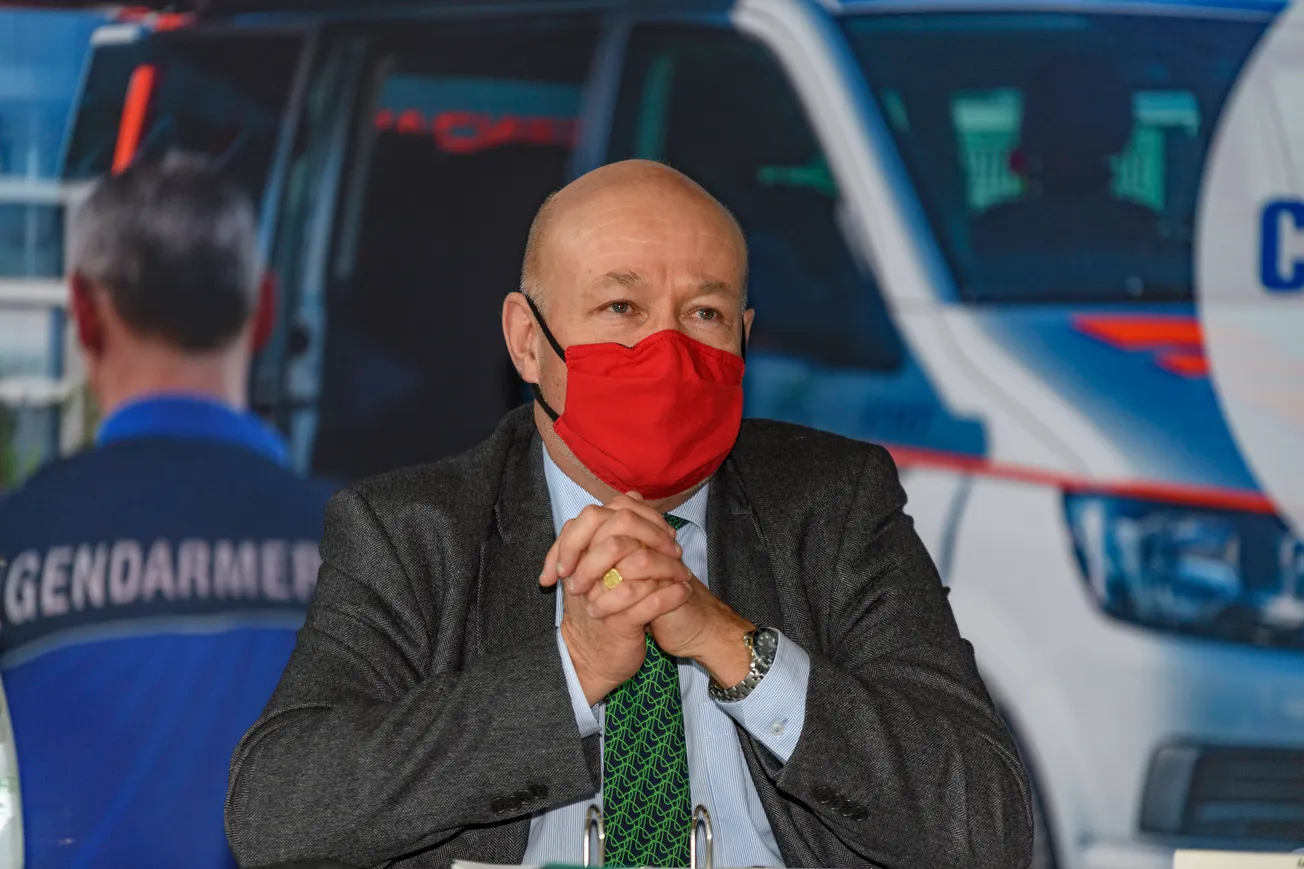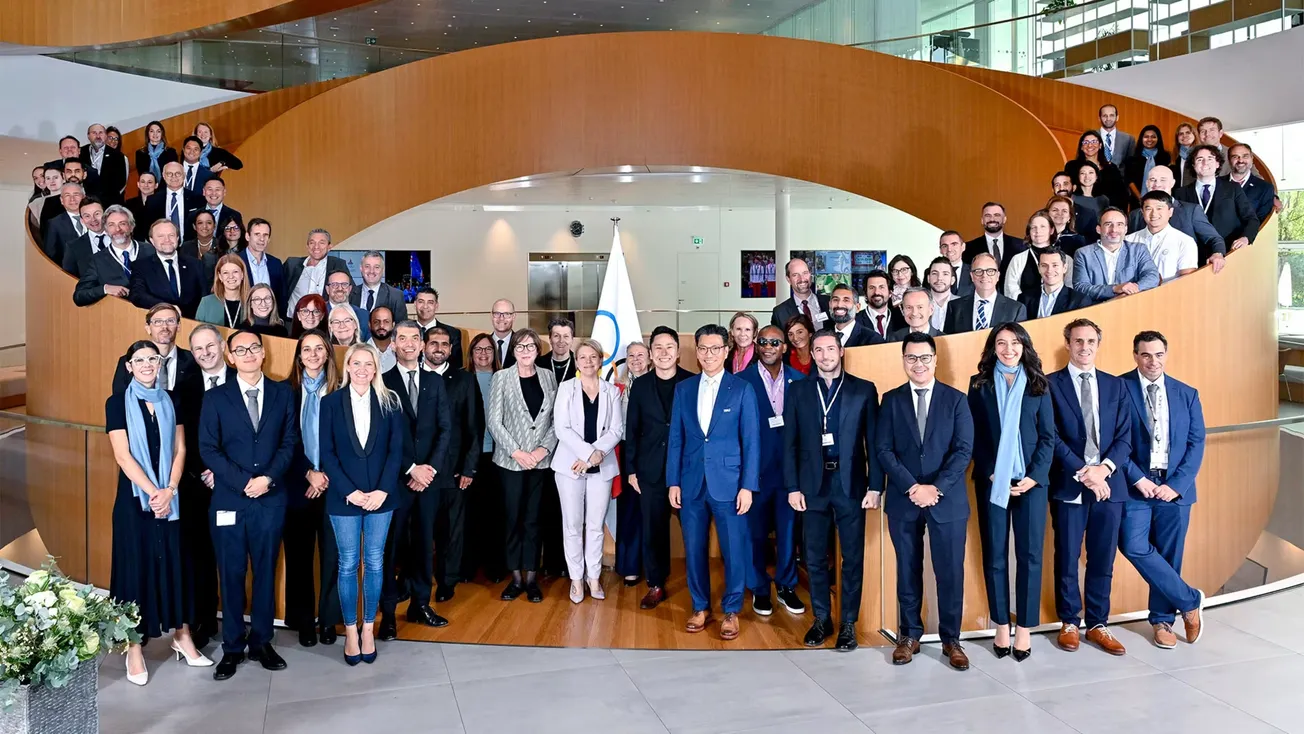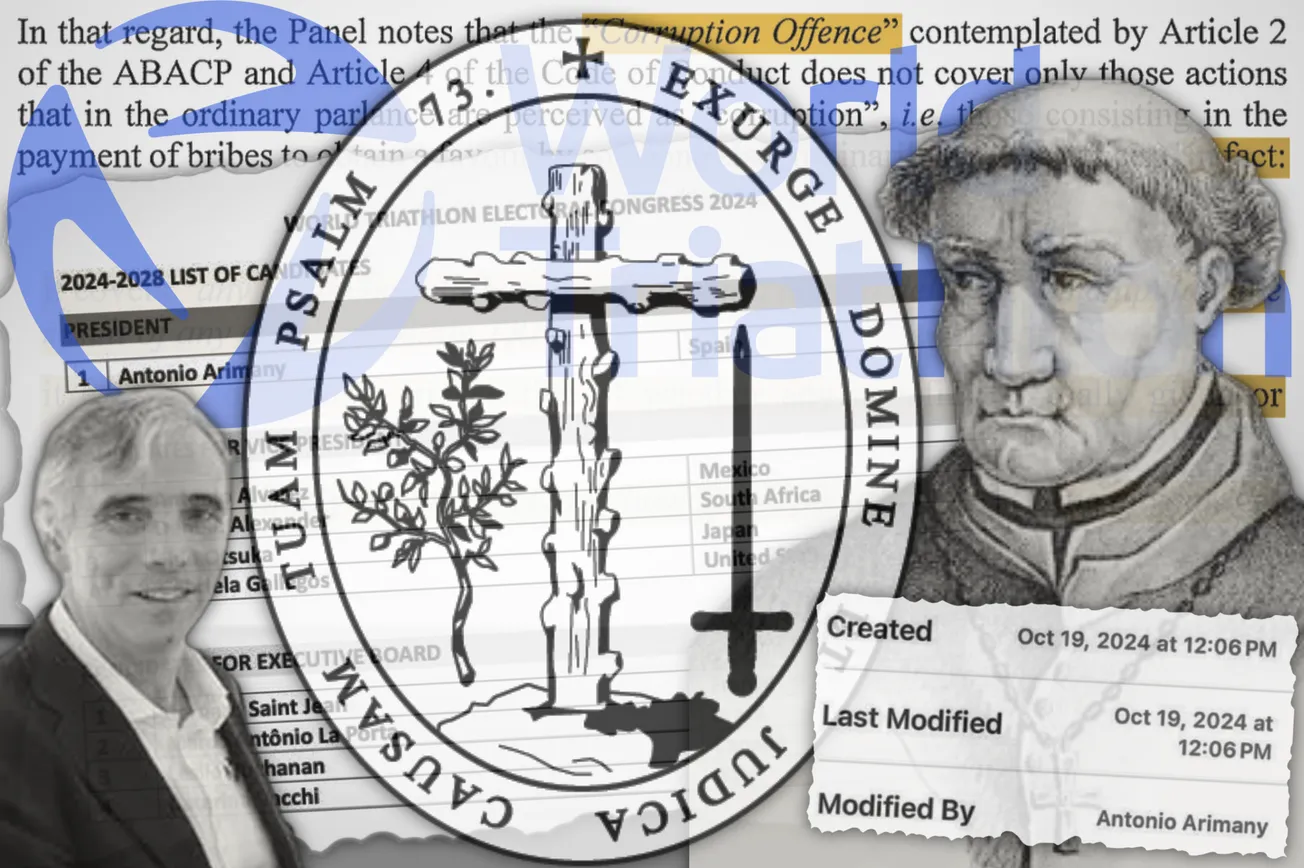Russian athletes who represent their country must accept that the country’s Federal Medical Biological Agency (FMBA) can control and inspect every aspect of their preparation for competition. This includes diet, supplementation, rehabilitation and submission to medical examinations every six months, without which they are not permitted to compete internationally. The FMBA even operates an extensive Permitted List of supplements, which athletes are encouraged to consult alongside the World Anti-Doping Agency’s (WADA) Prohibited List.
The FMBA gave 15 year old figure skater Kamila Valieva (born 26 April 2006) 60 substances to take during the year before she reported a positive test for Trimetazidine on Christmas Day 2021. It has also given other Russian athletes supplements contaminated with Trimetazidine that have also caused them to test positive.
Three FMBA doctors work directly with Valieva. A team of 20 FMBA doctors travelled to Beijing to assist Mother Russia’s 209 athletes in preparing for the Winter Olympics 2022, where Valieva helped Russia to win the (now cancelled) team Gold. An FMBA director led the scientific support for the contamination theory put forward by Valieva’s defence.
Guilty until you can prove innocence. That is the status of an athlete who fails a doping test under the World Anti-Doping Code (WADC). The Valieva decision illustrates how this reversal of the usual evidential burdens of proof allows a state body that is responsible for everything an athlete takes to avoid blame when they test positive.
It also illustrates that the sport’s anti-doping and arbitration system is completely ineffective at holding states who dope their athletes to account. Sporting authorities didn’t want to tackle the Russian state doping scandal and only acted after they were forced to, following investigations by journalists. Sport failed to get to the bottom of similar situations in Romania and Bulgaria.
Perhaps sport doesn’t want yet another scandal to derail the Paris 2024 Olympics.
The FMBA and Kamila Valieva
Below is the list of 60 supplements that the FMBA gave Valieva to take during the year leading up to her positive test. Some of them are innocuous (Omega 3, Berroca Plus), but some raise eyebrows.
